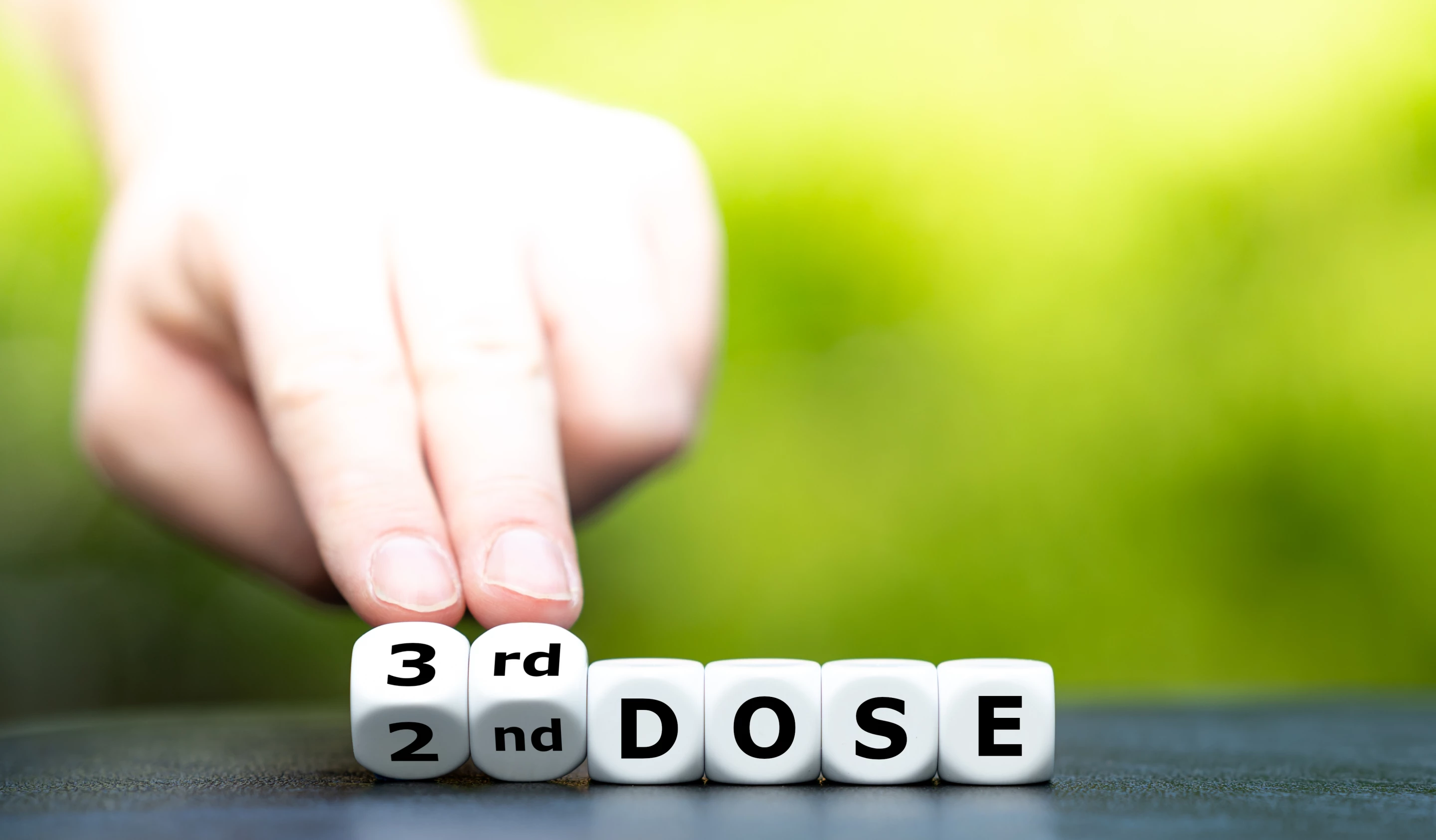The U.S. Food and Drug Administration (FDA) has authorized a third COVID-19 vaccine dose for some immunocompromised individuals. The authorization comes after several weeks of speculation about future vaccine booster plans and the FDA stresses other vaccinated populations do not require additional doses at this point in time.
“The country has entered yet another wave of the COVID-19 pandemic, and the FDA is especially cognizant that immunocompromised people are particularly at risk for severe disease,” says Janet Woodcock, Acting FDA Commissioner. “After a thorough review of the available data, the FDA determined that this small, vulnerable group may benefit from a third dose of the Pfizer-BioNTech or Moderna Vaccines.”
The amendment to the current emergency use authorization now allows a third dose of mRNA vaccine to be administered at least 28 days after the current two-dose protocol. The authorization is not especially clear as to what specifically defines an “immunocompromised individual” in this scenario, however, updated recommendations from the Centers for Disease Control and Prevention (CDC) offer some extra detail.
The CDC states third vaccine doses should be administered in moderate to severely immunocompromised individuals. This covers six categories of people: those receiving active cancer treatment, organ transplant recipients taking immunosuppressive medications, stem cell transplant recipients, patients with moderate or severe immunodeficiency diseases such as DiGeorge syndrome or Wiskott-Aldrich syndrome, advanced or untreated HIV patients, and those being currently treated with immunosuppressive medications including high-doses of corticosteroids.
The change in advice is based on a small but growing body of evidence indicating immunosuppressed individuals do not respond effectively to current two-dose vaccine strategies. An influential study from Johns Hopkins researchers in May found antibody responses from mRNA vaccines in solid organ transplant recipients were significantly lower than those seen in the general population. Over half of the cohort studied registered insufficient antibody responses after two mRNA vaccine doses.
As we’ve previously stated, other individuals who are fully vaccinated are adequately protected and do not need an additional dose of COVID-19 vaccine at this time
Several other regions around the world have already announced similar third vaccine dose plans, including Israel and the United Kingdom. Israel in particular has already broadened its vaccine program beyond immunocompromised populations, beginning to offer booster doses to everyone over the age of 50.
When all those in the general population will require booster doses is still a topic of great debate. The World Health Organization (WHO) recently urged wealthy countries to not begin third dose programs at this time. While presenting a moratorium on vaccine boosters the WHO was clear its concern was not directed at third doses for immunocompromised populations, but instead targeted at those healthy individuals who had already gained effective protection from the current two-dose protocol.
In announcing this new FDA authorization, Janet Woodcock made clear US regulatory bodies do not believe there is currently strong evidence healthy individuals require a third dose of mRNA vaccines.
“As we’ve previously stated, other individuals who are fully vaccinated are adequately protected and do not need an additional dose of COVID-19 vaccine at this time,” says Woodcock. “The FDA is actively engaged in a science-based, rigorous process with our federal partners to consider whether an additional dose may be needed in the future.”
The new FDA advice only applies to those who received Pfizer or Moderna mRNA vaccines. Recipients of the single dose Johnson and Johnson vaccine are not included in this new authorization. The FDA is reported as saying there is no data so far on responses in immunocompromised individuals to that particular vaccine. However, the FDA also notes the majority of immunocompromised subjects most likely received mRNA vaccines early in the vaccine roll out.
Source: FDA




